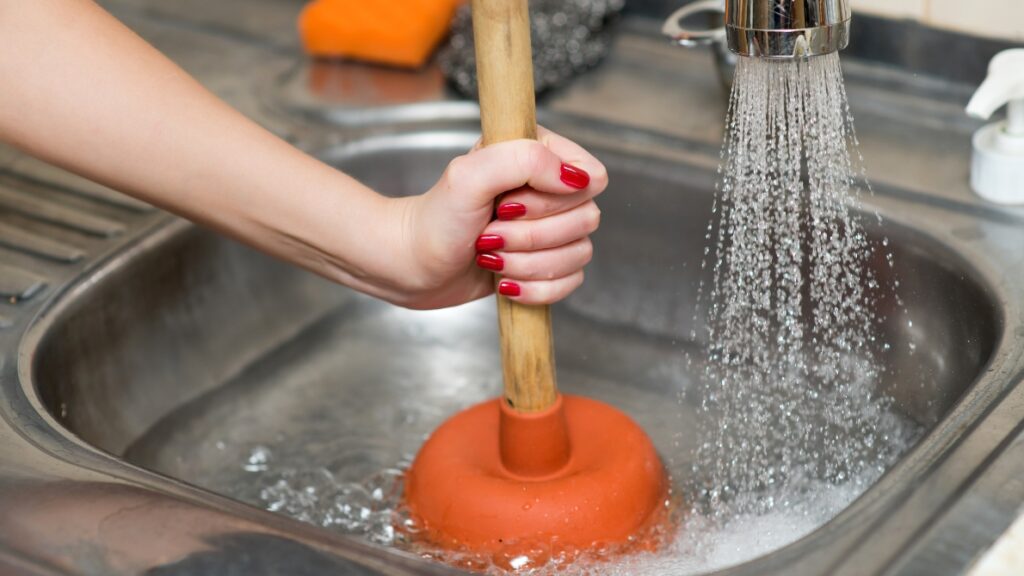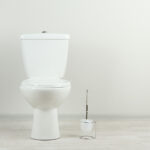Welcome back to the Metro-Flow Plumbing blog! February is off to a good start as we’re going to talk about garbage disposal clogs and what causes them. Before we continue, we welcome you to explore the rest of our website and get familiar with Metro-Flow Plumbing’s goods and services. Our team of certified and insured plumbers are ready to tackle any plumbing problem you may have. Give us a call at 214-328-7371 and we’ll take care of the rest!
The garbage disposal is one of the most used appliances in our home. It’s also one of the most common places for clogs to form. It can be difficult to know what causes a clog in your disposal, and how you can prevent them from occurring but we’re here to enlighten you with the usual culprits. In this blog post, we’ll go over some of the most common causes of garbage disposal clogs and how you can prevent them.
Grease & Oil
Grease and oil are two of the most common causes of clogs when it comes to clogging up your garbage disposal. Grease and oil have a tendency to congeal when exposed to cool temperatures, which makes it easy for them to stick on the walls of your pipes. To avoid these types of clogs, make sure that you never pour grease or oil down your sink drain, as this will significantly increase your chances of developing a clog. Instead, pour them into an old carton or container and dispose of it in the trash can.
Grease and oil are amongst the most frequent causes behind garbage disposal clogs. After meals, some people may pour excess grease down their garbage disposals, thinking that it is ok. Though certainly a time saver this habit will surely cause you to have to fix your garbage disposal more frequently. This can cause significant problems further down the line as greasy residue burdens your garbage disposal’s pipes, leading to blockages and potential damage. While pouring oil down the garbage disposal is better than using it with grease, this can still be dangerous for garbage disposals and should be avoided whenever possible. To avoid garbage disposal clogs in the future, make sure you are not disposing of any kind of grease or oil in your drain system at all.
Food Scraps
Another common cause of garbage disposal clogs is food scraps that are too large for your unit to handle. Most disposals will struggle with items like potato peels, corn husks, celery stalks, eggshells, bones, or fruit pits — all of which should be avoided if possible or broken down so they don’t become stuck in your pipes. If these types of items do end up going down your sink drain by accident, try running cold water while running your disposal to help push them through the pipes more easily.
If you find yourself dealing with garbage disposal clogs on a regular basis, it could be an indication that you’re trying to dispose of scraps that are too large for your unit to handle. All garbage disposals have a maximum capacity in terms of size, so if the food is too big it may not break down properly and will get stuck in the system. If you’re ever unsure if something is suitable, then it’s best to err on the side of caution and throw it away in the trash. Overall, by paying attention to what you are putting down the garbage disposal and how much you put down at one time, you can protect and ensure a longer lifespan of your garbage disposal unit.
Foreign Objects
Finally, foreign objects are another source of blockages that occur often in garbage disposals. These objects can include anything from jewelry or coins to children’s toys or bottle caps – all of which have no place being inside your garbage disposal unit. Be sure not to let any foreign objects slip down into the sink by accident – if you do find something has gone missing down there (like a ring!), make sure the garbage disposal is off and try using a pair of pliers or tongs to fish it out before it causes any major damage.
Garbage disposals are a great kitchen convenience. You have to be careful of what might fall in there. Silverware and other small hard objects should never go down the garbage disposal and should instead be thrown away in the garbage bin if damaged. Hair, grease, and food particles can also cause a clog, especially if poured fast down the drain and should be avoided.
Remember a good trick to keeping your garbage disposal running smoothly (and smelling fresh) is to regularly grind citrus rinds or cold water to help keep your garbage disposal running smoothly.
In summary, do not put large pieces of food down your garbage disposal, and avoid greasy foods and foreign objects from entering into the blades. You can help keep your system running smoothly without having to worry about frequent repairs. With just a little bit extra care when using your disposal system – as well as regular maintenance checks – you can avoid costly repairs and keep your kitchen sink free from unpleasant blockages!
We hope that this helped to clear up any questions you may have regarding garbage disposal clogs. At Metro-Flow Plumbing we try our best to help you navigate the world of plumbing Dallas. Please feel free to contact us about a plumbing problem needing attention and we’ll be sure to connect you with one of our certified and insured plumbing technicians. Thank you for joining us for another blog entry and be sure to come back next week for more plumbing know-how!










